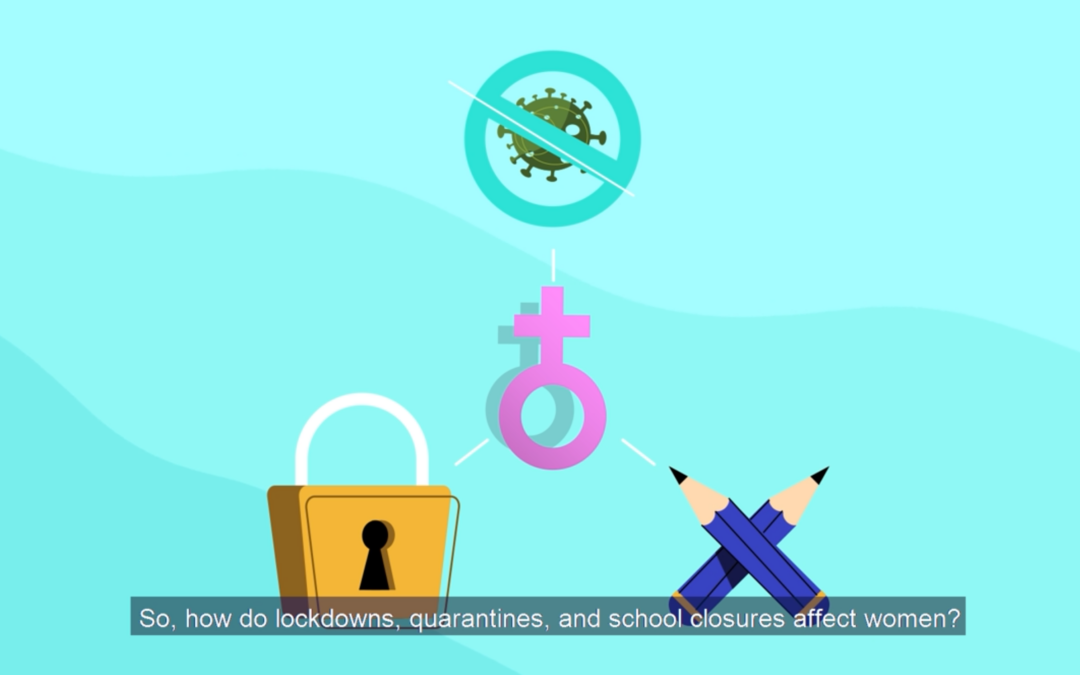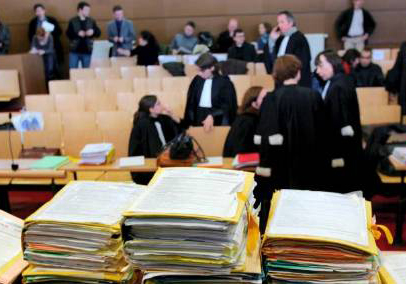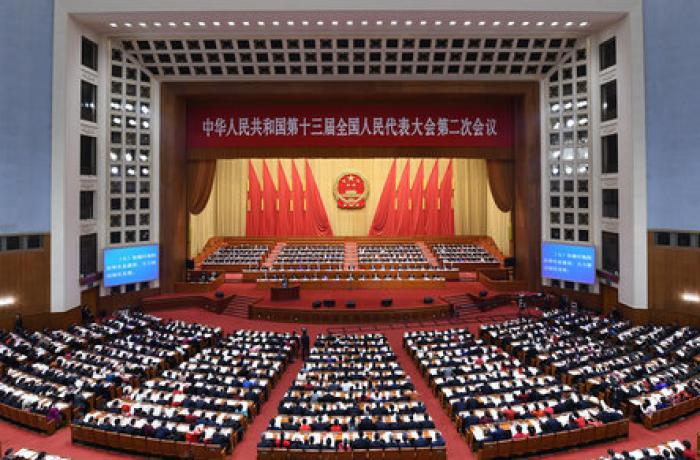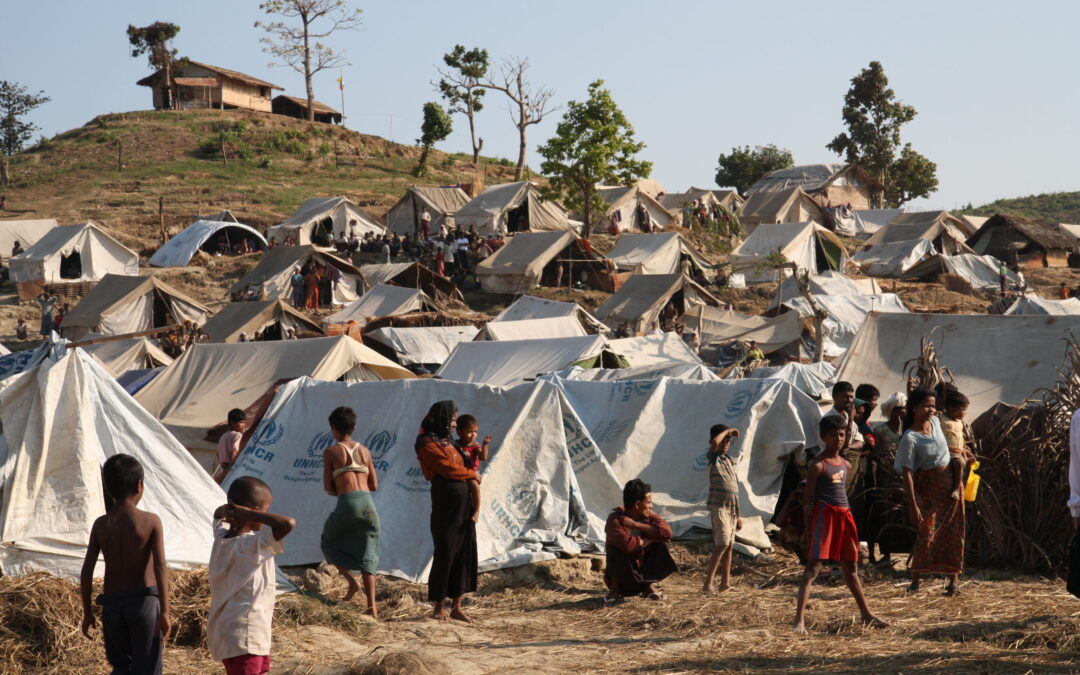
Jun 2, 2020 | Advocacy, News
At a webinar hosted on 26 May, the ICJ heard from women human rights defenders (WHRDs) from Asia, Africa, and the Middle East discussed the adverse impact on women of lockdowns and other measures imposed by governments around the world as a response to the COVID-19 pandemic.
Reports from around the world indicate a rise in the number of cases of domestic violence and new challenges faced by women victims in accessing justice.
“Support or assistance for women experiencing domestic violence was not classified as an essential service that may continue when the country went on lockdown,” said Nonhlanhla Dlamini who is the Director of Swaziland Action Group Against Abuse (SWAGAA) in Eswatini. Still, SWAGAA and other NGOs in Eswatini persisted in their work to lobby the government to classify their work as an essential service. The government later provided authorization to allow SWAGAA’s staff to move more freely in order to assist women experiencing gender-based violence during the lockdown.
Theresia Iswarini, Commissioner of Indonesia’s National Commission on Violence Against Women (KOMNAS Perempuan), observed that because of the limited movement during the lockdown, NGOs are having a hard time reaching women experiencing domestic violence who do not have phones or any devices to access the internet.
NGOs also face the challenge of placing these women in safehouses because they need to first present a certificate that they are COVID-free before they are accepted in the safehouse and such certificates are almost impossible to secure during the pandemic.
The WHRDs assisting women experiencing gender-based violence often also need psychosocial support, as “they also have to deal with the additional burdens of overseeing the homeschooling of their children and caring for family members who may have also fallen ill.”
In Sri Lanka, Mariam Dawood who is the Legal Adviser from Women in Need (WIN), noted that “women in Sri Lanka have always faced this problem and [of being] ignored when they report gender-based violence to police authorities.”
She also shared that while courts had started to operate on a limited basis in the country, women in maintenance cases risk being exposed to infection because they have to appear in court at least every month to get an order from the judge to compel their spouses to pay alimony or child support.
These orders were not automatically renewable and must be obtained by women every month from the court.
ICJ Commissioner and Member of the UN Committee on the Elimination of Discrimination against Women Nahla Haidar asked participants to think about how civil society could mobilize other stakeholders in pandemics to give an ethical call on how behaviors can change at home.
“Who is responsible? We have been trying to speak to faith leaders, especially women faith leaders [in the MENA region]. I am wondering how these channels can be used, as well as within traditional leadership channels in Africa,” Haidar said.
ICJ Senior Legal Adviser, Emerlynne Gil, noted that many of the issues raised showed that even during the pandemic, governments reproduced patriarchal approaches to public polices which effectively saw women as subordinate to men.
“This inequality underlines many of the actions taken by governments around the world to curb the pandemic,” said Emerlynne Gil. She added: “This means that it is all the more important for groups like the ICJ to continue its work eliminating gender stereotypes and discriminatory practices in the work of justice actors around the world.”
During the webinar, the ICJ launched an animation calling on States to adopt gender-sensitive responses to the COVID-19 pandemic. Watch the animation here:
The webinar was live streamed on ICJ Asia’s facebook. Watch the livestream here:

Jun 2, 2020 | News
The ICJ has called on the Russian authorities to institute a prompt, independent and thorough investigation into the recent use of physical force against lawyers Natalia Magova, Diana Sipinova and Liudmila Kochesokova and detention of Diana Sipinova by officers of the Ministry of Interior in the Kabardino-Balkaria Republic.
Those responsible should be held accountable, the ICJ stressed.
According to the lawyers and as corroborated by video recordings available online, they arrived in the Department of the Ministry of Interior in the Kabardino-Balkaria Republic to represent their client Ratmir Jilokov, another lawyer who was detained on 20 May 2020, also following alleged violence against him by the police.
Despite the lawyers’ requests to have access to their client, they were not allowed to meet him. Instead, they were removed from the building of the Department of the Ministry of Interior with the use of physical force by several officers, which resulted in an altercation.
Moreover, Diana Sipinova was detained in the building of the Department for several hours. Both she and Ratmir Jilokov were later released.
“The use of physical force against the lawyers to prevent their meeting their client was clearly contrary to international human rights law and standards, including those on the role of lawyers,” said Temur Shakirov, Senior Legal Adviser of the ICJ Europe and Central Asia Programme.
The ICJ also raised concerns at the criminal proceedings against lawyer Diana Sipinova, following the incident of 21 May 2020, and Ratmir Jilokov, who was detained on 20 May 2020 apparently in connection with having tried to defend a client’s premises from what he considered to be an unlawful search by the authorities.
Both are accused of having used violence against police officers.
Reportedly, the criminal proceedings against Diana Sipinova and Ratmir Jilokov were instituted following their complaints of being subjected to physical attack by the officers of the Ministry of Interior of the Kabardino-Balkaria Republic.
The ICJ highlights that as provided by the UN Principles on the Role of Lawyers, States must ensure that lawyers are able to perform all of their professional functions without intimidation, hindrance, harassment or improper interference and that they do not suffer, or be threatened with prosecution for any action taken in accordance with recognized professional duties, standards and ethics.
International human rights law further guarantees the right of a person deprived of liberty to meet with his or her lawyer.
The authorities should take effective measures to prevent such acts against lawyers in the future, and to ensure that lawyers are not prevented from representing their clients in accordance with law, the ICJ said.
The ICJ furthermore calls on the authorities to terminate the criminal investigations against the lawyers in connection with their attempts to meet with and defend their clients’ interests, and for any other action they have taken in relation to the representation of their clients that was in accordance with their professional duties, standards and ethics.
Background information:
Natalia Magova, Diana Sipinova and Liudmila Kochesokova are lawyers based in Kabardino-Balkaria Republic in the North Caucasus part of the Russian Federation.
According to the official website of the Investigative Department of the Investigative Committee of Kabardino-Balkaria, Diana Sipinova and Ratmir Jikolov are charged with the criminal offence provided for by Article 318.1 (use of violence which does not endanger life or health against the public officials in connection with the performance of their duties) of the Criminal Code of the Russian Federation.
In particular, Diana Sipinova is charged with having used violence against officers of the department of the Ministry of Interior of Kabardino-Balkaria Republic when she requested access to her client on 21 May 2020. Ratmir Jilokov is charged with having used violence against the police officers who arrived in the office of his client to conduct a search on 20 May 2020.
On 30 May 2020, the first instance court imposed the preventive measure for Diana Sipinova of prohibition of certain activities for two months.
Lawyer Ratmir Jilokov, who was detained on 20 May and released on 21 May 2020, claims that the officers who arrived in his client’s office for a search failed to provide him with any legal grounds or the document authorising the search, and that he was subjected to violence when he had challenged the unlawfulness of the officers’ actions. The first instance court imposed the preventive measure of prohibition of certain activities for two months in respect of him.
The Federal Chamber of Lawyers of Russian Federation expressed their support to the lawyers and criticized the interference with their professional functions and actively participated in the defence of the lawyers.
The ICJ has previously raised concerns at violence and intimidation against Russian lawyers.

May 28, 2020 | Articles, Nouvelles
Un article de Martine Comte, Commissaire française de la CIJ. (Avec une mise à jour)
En raison de la crise sanitaire, la loi française n° 2020-290 du 23 mars 2020 habilitait le gouvernement à adapter notamment, par ordonnance, diverses règles de procédure pénale, compte tenu des circonstances.
C’est ainsi que l’article 16 de l’ordonnance n° 2020-303 du 25 mars 2020 prorogeait de plein droit les délais maximums de détention provisoire d’une durée allant de 2, 3 ou 6 mois selon la peine encourue.
L’interprétation de ce texte donnée par le Ministère de la Justice aboutissait à priver les détenus de tout examen contradictoire par un juge de cette prolongation, avec l’assistance d’un avocat, et allongeait automatiquement la durée maximale de détention provisoire possible, et ce, malgré différents recours, tous rejetés par le Conseil d’État.
Cette situation, contraire à la convention européenne des droits de l’Homme, au pacte international relatif aux droits civils et politiques et à la Déclaration universelle des droits de l’Homme, ne cessait d’être dénoncée par différents juristes, qu’ils soient magistrats, avocats ou professeurs de droit, et bien sûr, par les défenseurs des droits de l’Homme .
Elle avait donné lieu à un précédent article sur ce site.
C’est dans ces conditions que le Parlement a adopté, le 11 mai 2020, la loi n° 2020-546 prorogeant l’état d’urgence sanitaire et complétant ses dispositions, publiée le 12 mai 2020, après décision du conseil constitutionnel n° 2020-800 DC du 11 mai 2020 .
Cette loi modifie notamment l’article 16 précité de l’ordonnance n° 2020-303 du 25 mars 2020 et crée un article 16-1 qui met fin, à partir du 11 mai, à la prolongation de plein droit des titres de détention provisoire qui arrivent à échéance, le débat contradictoire devant un juge avec l’assistance d’un avocat redevenant la règle.
Par ailleurs, la prolongation de plein droit du délai de détention intervenue au cours de l’instruction avant le 11 mai 2020, en vertu de l’article 16 précité, n’a pas pour effet d’allonger la durée maximale totale de la détention en application des dispositions de code de procédure pénale, sauf si cette prolongation a porté sur la dernière échéance possible .
Enfin, pour tenir compte des prolongations intervenues avant le 11 mai, ou pour les détentions venant à échéance entre le 11 mai et le 11 juin, des dispositions particulières prévoient l’obligation d’une audience contradictoire devant le juge selon des modalités précises et dans des délais contraints .
Si l’on peut se réjouir que le Parlement ait mis fin à une situation portant atteinte de façon considérable aux droits et libertés fondamentales, il n’en reste pas moins que les juridictions vont devoir appliquer, dans des conditions particulièrement difficiles, des dispositions complexes, et statuer, dans des délais brefs, sur des prolongations de détention intervenues sans aucun contrôle et sans débat ou venant prochainement à échéance.
Il eût finalement été plus simple de respecter dès le départ les garanties fondamentales découlant de la présomption d’innocence et soumettant la privation de liberté avant procès au contrôle d’un juge indépendant, dans le cadre d’un débat contradictoire, avec l’assistance d’un avocat.
Il faut enfin noter que ce texte intervient quelques jours avant que la cour de cassation ne statue sur différents recours portant sur ce point et que sa décision constituera une référence pour savoir comment concilier, dans un contexte tout à fait exceptionnel, les droits humans et les libertés fondamentales avec les impératifs de continuité du fonctionnement des institutions.
Note et mise à jour de la CIJ: Le 26 mai, la cour de cassation a rendu deux arrêts levant les incertitudes sur la mise en oeuvre de l’article 16 de l’Ordonnance n°202-303 du 25 mars 2020 prévoyant la prolongation de plein droit des détentions provisoires. Voir le communiqué et le jugement ci-dessous:
Communiqué
Arrêt détention

May 26, 2020 | News
The ICJ today expressed its grave concern over the National People’s Congress (NPC)’s draft Decision on establishing and improving the legal system and enforcement mechanisms for the Hong Kong Special Administrative Region (HKSAR) to safeguard national security (“the Decision“).
The ICJ called upon the NPC to withdraw the Decision and to protect human rights, including freedom of expression and association, in accordance with its international human rights obligations and its longstanding commitment to respect the right to political participation of the people of Hong Kong.
The call comes after the NPC presented a decision at the third annual session of the 13th NPC on 22 May, 2020 which paves the way for legislation that would, “prevent, stop and punish any act occurring in the HKSAR to split the country, subvert state power, organize and carry out terrorist activities and other behaviours that seriously endanger national security as well as activities of foreign and external forces to interfere in the affairs of the HKSAR” and would allow the central government to set up “security organs” in the territory.
The ICJ stressed that while the precise contents of the proposed National Security Law have not been publicized, the language of the Draft Decision is troubling given how categories of “terrorist activities” and “subversion” have been abused in the past.
“There is a well-substantiated fear that the new security law will be used to suppress freedom of expression and curtail the activities of human rights defender in violation of the rights of the people of Hong Kong guaranteed under its Basic Law and international human rights standards,” said Frederick Rawski, Asia & the Pacific Director of the ICJ. “We have already witnessed, many times over, how other deeply flawed laws like the Public Order Ordinance, have been abused to criminally charge peaceful protesters.”
It is expected that the NPC’s Decision will be added to Annex III of the Basic Law. Under the Article 18 of the Basic Law, Chinese national legislation only has effect in Hong Kong if it is listed in Annex III of the Basic Law and related to defence, foreign affairs or other matters outside the limits of the HKSAR’s autonomy. Once added to Annex III, the law can be promulgated by the Hong Kong Chief Executive by issuing a legal notice in the Government Gazette.
In 2003, the HKSAR government attempted and failed to enact a similar national security bill, after an estimated half a million people took to the streets to oppose the legislation.
“It is especially alarming that the central government has decided to take such a top-down, and anti-democratic approach to imposing this law by bypassing Hong Kong’s Legislative Council. There are no winners from such an approach, which will provoke a massive public response and a return to the unlawful use of force by the police,” said Rawski.
The ICJ stressed that legislation that seeks to address genuine national security concerns must comply with rights protections in the Basic Law, the International Covenant on Civil and Political Rights (ICCPR), which is applicable to Hong Kong, and other international human rights standards and should be subject to genuine public consultation and debate.
The NPC is expected to vote on the resolution at the end of the annual session, likely on May 28, 2020. The NPC decision will delegate the Standing Committee to draft the actual details of the new legislation for Hong Kong, which would then be included in Annex III of Hong Kong’s Basic Law. The new law will be introduced in Hong Kong through either promulgation or local legislation.
Contact
Frederick Rawski, ICJ’s Asia Pacific Regional Director, t: +66 2 619 84 77; e: frederick.rawski(a)icj.org
Boram Jang, ICJ Legal Adviser, Asia & the Pacific Programme, e: boram.jang(a)icj.org
See also
Joint Statement: Hong Kong arrests of pro-democracy figures condemned by international legal community
China (Hong Kong): Authorities must protect right of peaceful assembly and end legal harassment of activists and journalists
China (Hong Kong): ensure police do not use excessive force against protesters

May 22, 2020 | News
In order to comply substantially with the International Court of Justice’s provisional measures Order in the case of The Gambia v. Myanmar, Myanmar should carry out legal reforms and cooperate with international accountability processes, said the ICJ today.
The Gambia has accused Myanmar of violations of the 1948 Genocide Convention in respect of its treatment of Rohingya population, characterized by acts of widespread killing and displacement of the population.
The call comes as Myanmar is scheduled to report on “all measures taken” to give effect to the provisional measures Order (Order) issued by the Court on 23 January 2020.
“Myanmar has not taken ‘all measures within its power’ to prevent acts of genocide until it implements comprehensive legal and constitutional reforms,” said Sam Zarifi, Secretary General of the International Commission of Jurists. “Accountability lies at the heart of prevention, and so long as the Tatmadaw remains unaccountable to the civilian authorities the cycle of impunity for criminal atrocities within the country will continue.”
Since the Order, Myanmar has taken a limited number of steps linked to its compliance with the Order, including issuing three Presidential Directives encouraging anti-hate speech activities, and ordering compliance with the Genocide Convention and the preservation of evidence of human rights and related violations in Rakhine.
Myanmar has also asserted that the findings of the Government-commissioned Independent Commission of Inquiry (ICOE), which made selective admissions including that war crimes may have been committed during the 2017 “clearance operations” in Rakhine, have been transmitted to the Attorney General and the Commander-in-Chief of the Tatmadaw and that action would be taken “in conformity with military justice procedures if there is credible evidence of any commission of offence by members of the Tatmadaw.”
However, the Government has yet to amend or repeal key laws that facilitate discrimination against the Rohingya, including the 1982 Citizenship Law, 2015 Race and Religion Protection Laws and 2014 Myanmar National Human Rights Commission Law. On 6 May 2020, the International Commission of Jurists published a report on the killing of a journalist, Ko Par Gyi, in September 2014, which condemned the fundamentally flawed “military justice procedures” used to address allegations of serious human rights violations. The report highlighted the many deficiencies in ensuring to accountability for serious human rights violations in Myanmar under its prevailing legal framework, including:
- that several provisions of national laws facilitate impunity for serious human rights violations by soldiers against civilians, shield security forces from public criminal prosecutions and deny victims and their families of the right to truth about violations;
- investigations into unlawful killings routinely lack the independence, impartiality and effectiveness necessary to establish the truth and to provide accountability and redress; and
- the rights of victims and their families are rarely respected, including the right to access information concerning the violations and accountability processes, and the right to remedies and reparations.
The UN Human Rights Council has established an Independent Investigative Mechanism to look at allegations of genocide, crimes against humanity and other atrocities in Myanmar, but the government has failed to extend its cooperation with the mechanism.
“Myanmar’s inability to prevent serious human rights violations under the existing legal framework underscores the need for it to cooperate with international justice processes, including the UN’s Independent Investigative Mechanism for Myanmar – and for the UN Security Council to refer the situation to the International Criminal Court,” added Zarifi.
Download the statement with detailed background information here.
Contact
Sam Zarifi, Secretary General of the International Commission of Jurists, t: +41 79 726 4415; e: sam.zarifi(a)icj.org
Kingsley Abbott, Coordinator of the ICJ’s Global Accountability Initiative, t: +66 94 470 1345; e: kingsley.abbott(a)icj.org
Related work
Report: Remove barriers to justice for killing of journalist Ko Par Gyi
Statement: Why law reform is urgent and possible
Statement: Implement International Court of Justice provisional measures Order without delay
Briefing Paper: Four immediate reforms to strengthen the Myanmar National Human Rights Commission
Briefing Paper: Myanmar’s discriminatory citizenship laws can and must be reformed









